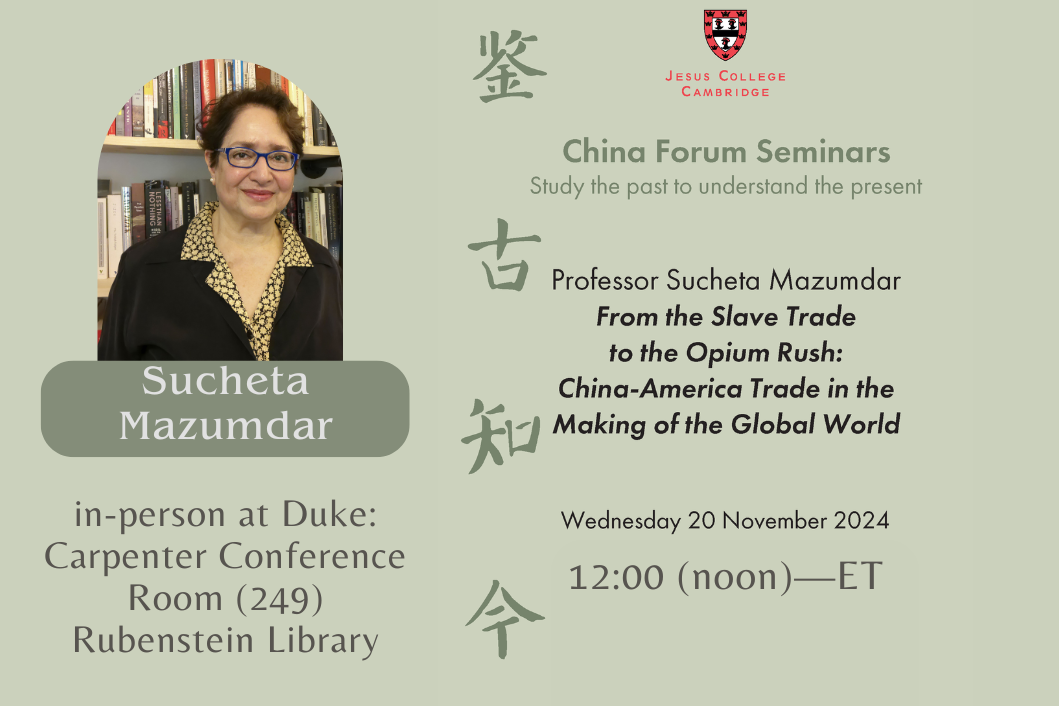From the Slave Trade to the Opium rush: China-America Trade in the Making of the Global World

Join APSI for a hybrid (in-person/online) session of the China Forum seminar series organized by Jesus College Cambridge (UK). Members of the Duke community are encouraged to attend in-person if at all possible. Information about online attendance can be found on the APSI website (advance registration is required through Jesus College, Cambridge).
This talk centers on a simple question: in what ways does our understanding of American history and Chinese history of the crucial century, 1750-1850, remain inadequate if we fail to look at the intimate connections between the slave trade and the opium trade? The Atlantic Triangular Trade and the Opium Trade to China continue to be treated as if these were occurring in separate economic world systems, and that what went down in Atlantic waters had little impact on China in the 1750s and up through to the Opium War. This is a partial view. Professor Mazumdar points instead to the integrations of the Atlantic and Indian-Pacific worlds that had already developed with the purchase price of slaves in Africa was set in Asian goods, textiles and cowries.
The Seven Years War (1756-63) forms a turning point in world history. Drawing on the private papers of New England based traders, Mazumdar shows how, in the wake of the Seven Years War and the American Revolution that followed as result of the War, saw the emergence of new group of American merchant-capitalists. A group of them linked activities in the Atlantic slave trade with entry into the India-China opium trade, and became the first generation of American industrialists, as they moved their capital accumulated through the China trade into banking, infrastructural and educational investments in America. And in at least one unusual instance, American merchants also invested the capital on behalf of a Chinese Hong merchant who had befriended them.
In conclusion, Mazumdar will touch on how the old slave trade ships were redeployed to bring indentured labor from China and India to work in the Caribbean, a closing note on the circulations of capital and labor in the making of the modern world.
About the speaker:
Sucheta Mazumdar is Associate Professor Emerita, Department of History, Duke University, specializing in the history of late imperial China. She focuses on the history of South China and Guangdong province in particular, and brings together the connective histories of China and India to explore questions of historical change.







